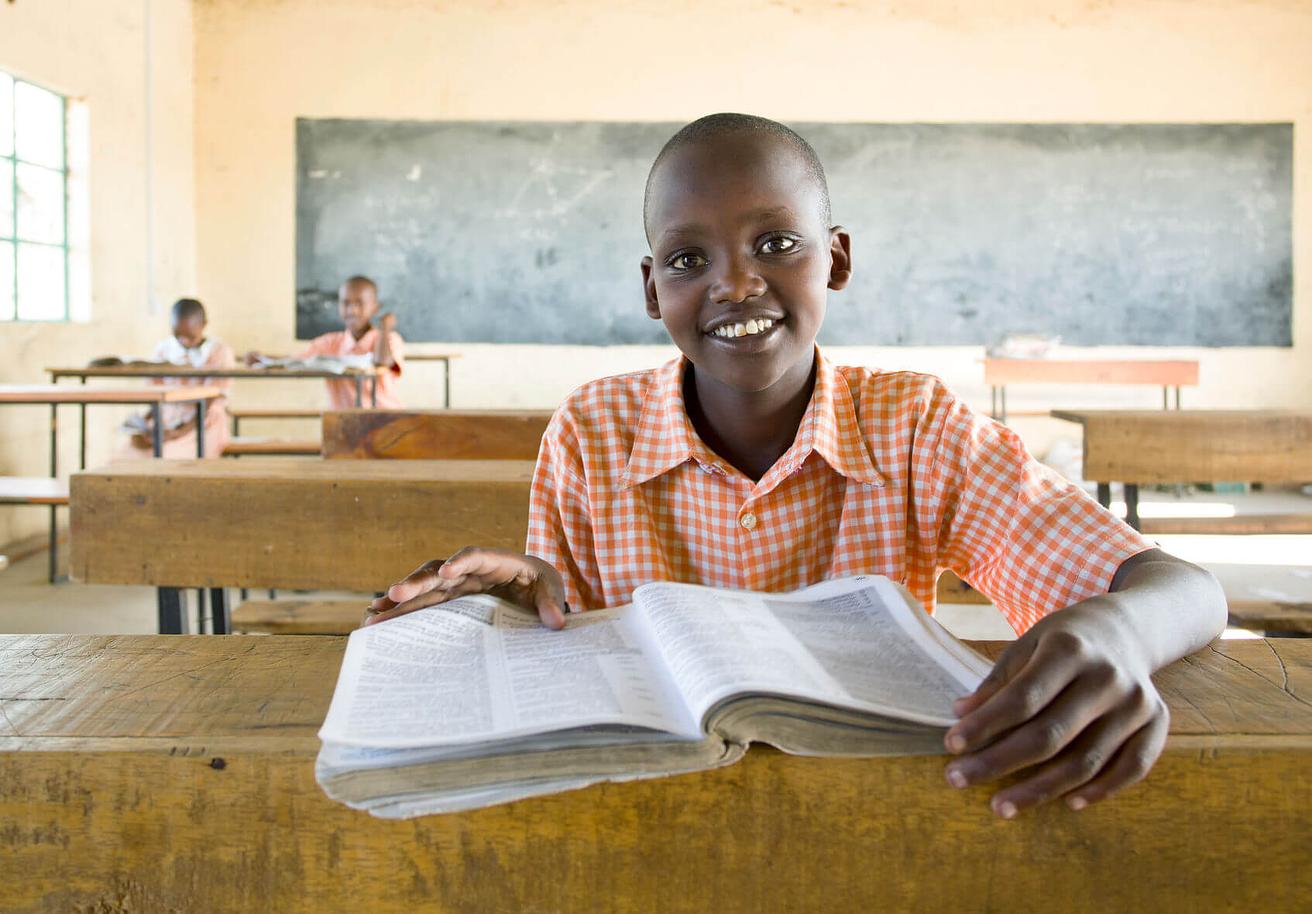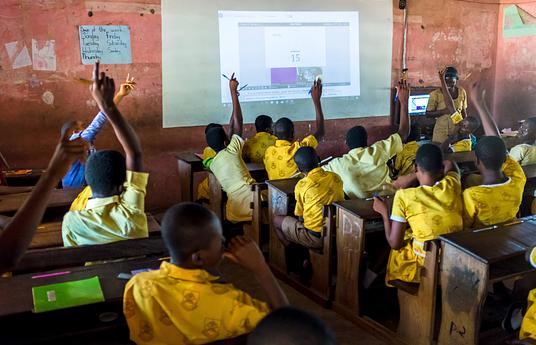The obstacles facing equality in education are vast and various. Each obstacle is unique to its location informed by larger cultural problems and norms. However, one thing that is constant is that there are people all over the world fighting for those who have less power to ensure they get the education they deserve. And although problems in education are unique to different cultures and circumstances, there’s still a lot we can learn from each other in order to make sure no child is left behind.
So here’s four examples of individuals and organisations who are creating a more equal playing field for the children they’re looking out for.
Ghana: Making Ghanaian Girls Great
High teacher shortages in Ghana, due to a rapidly growing education community and declining rate of teachers, leaves the most marginalised children at risk of not receiving an education. In rural Ghana 36% of students are at risk of never entering school.
To reach these children, The Varkey Foundation’s ‘Making Ghanaian Girls Great’ project uses live interactive technology to deliver quality education to marginalised students in Ghana. Now reaching over 18,000 children, the web sessions involve qualified teachers educating from a studio and being broadcast to the rural schools. This creates a neat and effective way for one teacher to reach thousands of children, effectively addressing the teaching crisis to make sure today’s Ghanaian children aren’t left behind.
The project places a special focus on making sure girls stay in school. They reach out to the rural communities to address the cultural views and issues of educating girls, and work with the female pupils to boost their self-esteem and self-belief, encouraging them to stay in education.
Afghanistan, Cambodia & South Africa: Skateistan
It’s not just about making sure children have access to education, every child deserves to have fun too! Skateistan uses the fun and love of skateboarding to engage children who otherwise might fall through the cracks. Focusing on children in areas affected by conflict or living in fragile states, skateboarding is used in a unique way to unite people of different backgrounds and is an accessible pathway for children to then get back into education.
Curiosity is at the heart of their educational programme, where they combine classroom curriculums with arts programs and skateboarding. Children learn in a supportive environment and are helped to understand and tackle the complex problems affecting them and their communities.
Making sure they reach girls specifically is high on their program, so they have a female-first agenda where they run girls-only sessions, employ female teachers and at least 50% of their intake is female students. Particularly in Afghanistan, due to restrictions, girls are not supposed to take part in sports activities. However, skateboarding is not subject to this rule and so is a great way to engage girls and provide them with the freedom to have fun, explore and learn.
Bolivia: Student Government Lotteries
It’s often the most confident and popular children who get to utilise the opportunities available to them in early life, and this impacts the rate of their success after school. We’re living in a very extroverted world, and though this works for them, we’ve created an inhospitable environment for quieter, shyer and more introverted children.
Addressing this problem can be incredibly simple. To make sure these children don’t miss out on the opportunity to learn leadership and civic skills, Student Government Lotteries has children take it in turns to be on the student government. Rather than hosting what is effectively a popularity contest, results are drawn at random with every child having the chance to take the helm.
It’s a simple and effective solution to the toxic popularity culture we have in our schools, and enables every child to learn to use their voice in a constructive way without forcing them to be somebody they’re not. Through using student lotteries perhaps we’ll enable students to grow in their self-confidence, helping them to achieve the career of their dreams after school.
USA: Education For Sharing
In order to ensure that future generations continue the good work being done by many in the world today, we need to educate children on their civic responsibilities and create a generation of changemakers. After all, there’s still a lot to be achieved in the quest for global equality, and with contemporary challenges such as climate change we’re going to need to keep fighting for those who have less power in the world. This is precisely at the heart of Education For Sharing’s work.
Education For Sharing partners with schools and organizations offering programs in sports, the arts, initiatives and science. Each program incorporates the UN’s sustainability goals with the aim of increasing student’s civic values such as empathy, gender equality and social responsibility.
Students who take part in the E4S programmes leave school with not only academic skills, but the understanding and knowledge on the problems facing the world today and the character skills to tackle them. Social, emotional and civic development aren’t usually at the heart of school’s curriculums but E4S is dedicated to changing this. Through programmes like these we can ensure that children today are prepared for a globalised world and have the skill sets needed to help tackle the major issues of our time, creating a more equal world all over.

